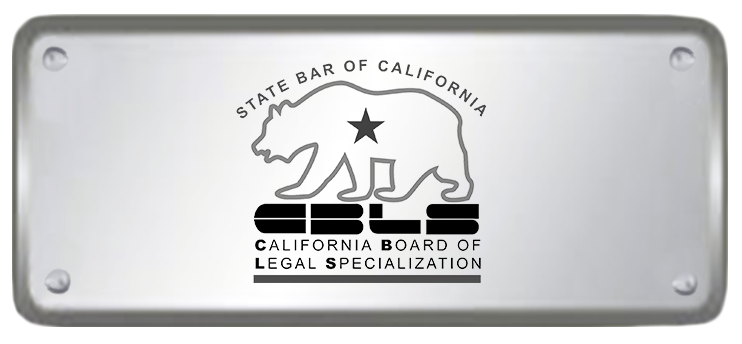WRITS AND APPEALS IN CALIFORNIA FAMILY LAW
In California divorce and family law cases, writs and appeals are legal petitions that can be used to challenge a decision made by the trial court. Appeals and writs can be complex and time-consuming, but they may be necessary to protect your legal rights and ensure that the trial court’s decision comports with the law. Antonyan Miranda has an in-house appellate law division that works with our litigation team upstream on complex issues before the trial court and downstream writs and appeals of decisions rendered by the trial court.
What is a Family Law Writ?
Writs can be used in family law cases to challenge a trial court’s decision when appellate relief is not. In California, the writs that are filed are writ of mandamus, writ of prohibitum, and writ of habeas corpus.
In basic terms, a writ of mandamus is used to request that the Court of Appeal issue an order to the trial court to do something, while a writ of prohibitum is used to request that the Court of Appeal order the trial court not to do something. A writ of habeas corpus is used to request that the Court of Appeal review the grounds for the order.
Writs are not subject to the often lengthy delays associated with appeals and therefore are considered to be an extraordinary remedy in family law cases. Most prejudgment family law orders are not directly appealable, and therefore a writ must be requested. Generally, to be successful in obtaining a writ, the appellant must demonstrate that there is no other plain, speedy, and adequate remedy in the ordinary course of law and that they will suffer irreparable injury if such relief is not granted.
What is a Family Law Appeal?
An appeal is a request for the Court of Appeal to review the trial court’s decision to determine was legally correct. The Court of Appeal has the power to review the trial court’s decision and determine whether there were any legal errors or mistakes made during the trial court proceedings. If so, the Court of Appeal may reverse the decision of the trial court, including a remand for further proceedings and other instructions for the trial court. If the appeal results in no determination of error, the trial court decision is affirmed. To challenge a determination made by the Court of Appeal, a further appeal to the California Supreme Court would be required.
To initiate an appeal in a divorce or family law case, the appellant must file a Notice of Appeal with the trial court within a certain timeframe after the entry of the order or judgment. The Notice of Appeal must state the grounds for the appeal and identify the specific issues that are being challenged. During the appeal process, the Court of Appeal will review the trial court’s decision and the record of the proceedings. The Court of Appeal will not consider new evidence or testimony but will only review the evidence that was presented during the trial court proceedings.
Considerations Regarding Appeals of a Family Law Case
It is important to consider that the majority of appeals are denied in California divorce and family law cases. A judgment of the trial court is presumed correct, and all intendments and presumptions are indulged in favor of correctness, and the appellant bears the burden of providing an adequate record, affirmatively proving judicial error. Depending on what was requested from or objected to at the trial court, the Court of Appeal may be left with little ability to review the trial court’s rulings.
Writs and appeals are powerful legal tools that can dramatically affect the outcome of a divorce or family law case. It is important to have highly skilled legal counsel to guide you through the complexities of this process, such as the appellate experts at Antonyan Miranda. Call us at 619-696-1100 to speak with one of our Concierge attorneys, or visit us at www.expertdivorcelaw.com for more information.
FOLLOW US!
WRITS AND APPEALS IN CALIFORNIA FAMILY LAW
In California divorce and family law cases, writs and appeals are legal petitions that can be used to challenge a decision made by the trial court. Appeals and writs can be complex and time-consuming, but they may be necessary to protect your legal rights and ensure that the trial court’s decision comports with the law. Antonyan Miranda has an in-house appellate law division that works with our litigation team upstream on complex issues before the trial court and downstream writs and appeals of decisions rendered by the trial court.
What is a Family Law Writ?
Writs can be used in family law cases to challenge a trial court’s decision when appellate relief is not. In California, the writs that are filed are writ of mandamus, writ of prohibitum, and writ of habeas corpus.
In basic terms, a writ of mandamus is used to request that the Court of Appeal issue an order to the trial court to do something, while a writ of prohibitum is used to request that the Court of Appeal order the trial court not to do something. A writ of habeas corpus is used to request that the Court of Appeal review the grounds for the order.
Writs are not subject to the often lengthy delays associated with appeals and therefore are considered to be an extraordinary remedy in family law cases. Most prejudgment family law orders are not directly appealable, and therefore a writ must be requested. Generally, to be successful in obtaining a writ, the appellant must demonstrate that there is no other plain, speedy, and adequate remedy in the ordinary course of law and that they will suffer irreparable injury if such relief is not granted.
What is a Family Law Appeal?
An appeal is a request for the Court of Appeal to review the trial court’s decision to determine was legally correct. The Court of Appeal has the power to review the trial court’s decision and determine whether there were any legal errors or mistakes made during the trial court proceedings. If so, the Court of Appeal may reverse the decision of the trial court, including a remand for further proceedings and other instructions for the trial court. If the appeal results in no determination of error, the trial court decision is affirmed. To challenge a determination made by the Court of Appeal, a further appeal to the California Supreme Court would be required.
To initiate an appeal in a divorce or family law case, the appellant must file a Notice of Appeal with the trial court within a certain timeframe after the entry of the order or judgment. The Notice of Appeal must state the grounds for the appeal and identify the specific issues that are being challenged. During the appeal process, the Court of Appeal will review the trial court’s decision and the record of the proceedings. The Court of Appeal will not consider new evidence or testimony but will only review the evidence that was presented during the trial court proceedings.
Considerations Regarding Appeals of a Family Law Case
It is important to consider that the majority of appeals are denied in California divorce and family law cases. A judgment of the trial court is presumed correct, and all intendments and presumptions are indulged in favor of correctness, and the appellant bears the burden of providing an adequate record, affirmatively proving judicial error. Depending on what was requested from or objected to at the trial court, the Court of Appeal may be left with little ability to review the trial court’s rulings.
Writs and appeals are powerful legal tools that can dramatically affect the outcome of a divorce or family law case. It is important to have highly skilled legal counsel to guide you through the complexities of this process, such as the appellate experts at Antonyan Miranda. Call us at 619-696-1100 to speak with one of our Concierge attorneys, or visit us at www.expertdivorcelaw.com for more information.





















